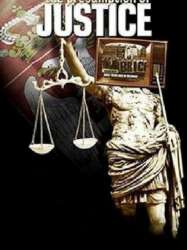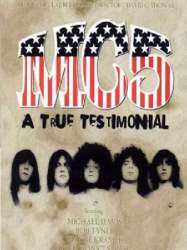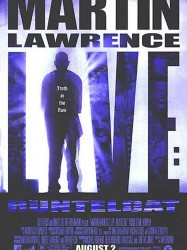Kosovo: Can You Imagine? est un film canadien de genre Documentaire réalisé par Boris Malagurski
Kosovo: Can You Imagine? (2009)

Si vous aimez ce film, faites-le savoir !
Kosovo: Can You Imagine? is a 2009 documentary film directed by Serbian Canadian Boris Malagurski about the plight of Serb communities living in Kosovo at the time the documentary was filmed. Former Canadian general Lewis MacKenzie, former Canadian diplomat James Byron Bissett, former UNMIK officer John Hawthorne and economist Michel Chossudovsky appear in the film.
Synopsis
The film gives a brief account of Kosovo's history, starting from the Battle of Kosovo, up to the current UN administration, which has existed since 1999, when, NATO bombed Yugoslavia for 78 days to halt a Serbian crackdown on ethnic Albanian separatism in its province of Kosovo. It includes commentary on the rights that Kosovo Albanians had during socialist Yugoslavia and parallels between the Kosovo Liberation Army and the separatist Front de libération du Québec by retired Canadian General Lewis Mackenzie. It is said by former Canadian Ambassador James Byron Bissett, that in the years following the war, many Serbs were expelled from their homes, kidnapped and killed, while a large number of their houses, cultural and religious sites were burned and destroyed. After that, economist Michel Chossudovsky discusses an alleged link between Kosovo's military and political leadership and organized crime.Commentaires
Postez un commentaire :
Suggestions de films similaires à Kosovo: Can You Imagine?
Il y a 6 films avec le même réalisateur, 8965 ayant les mêmes genres cinématographiques, pour avoir au final 70 suggestions de films similaires.Si vous avez aimé Kosovo: Can You Imagine?, vous aimerez sûrement les films similaires suivants :

The Weight of Chains (2010)
, 2h4Réalisé par Boris Malagurski
Origine Canada
Genres Documentaire, Historique
Thèmes Documentaire sur la politique, Politique
Acteurs Branislav Lečić
Note80%





The film provides a background history of Yugoslavia, from the medieval Battle of Kosovo to the 1912 incorporation of Kosovo into the Kingdom of Serbia and then to the formation of Josip Broz Tito's Socialist Federal Republic of Yugoslavia after World War II. It discusses the persecution of Kosovo Serbs after World War II, as well as alleged plans by Nationalists to create an ethnically pure Greater Albania.
 , 1h22
, 1h22Réalisé par Boris Malagurski
Genres Documentaire
Thèmes Documentaire sur les villes
Acteurs Boris Malagurski
Note38%





As the first feature documentary film about Belgrade, it presents the Serbian capital through the eyes of its inhabitants, presenting the history, culture, food and nightlife of the city. The film is presented in English and hosted by Boris Malagurski, who, according to his production company Malagurski Cinema, aims to capture the spirit of the Serbian capital. The author claims that Belgrade boasts a unique quality and energy, in spite of the fact that it was destroyed and rebuilt over 40 times in its history and that the greatest attraction of the city are the citizens themselves.

The Weight of Chains (2010)
, 2h4Réalisé par Boris Malagurski
Origine Canada
Genres Documentaire, Historique
Thèmes Documentaire sur la politique, Politique
Acteurs Branislav Lečić
Note80%





The film provides a background history of Yugoslavia, from the medieval Battle of Kosovo to the 1912 incorporation of Kosovo into the Kingdom of Serbia and then to the formation of Josip Broz Tito's Socialist Federal Republic of Yugoslavia after World War II. It discusses the persecution of Kosovo Serbs after World War II, as well as alleged plans by Nationalists to create an ethnically pure Greater Albania.

The Weight of Chains 2 (2014)
, 2h4Réalisé par Boris Malagurski
Origine Canada
Genres Comédie, Documentaire, Historique
Thèmes Documentaire sur la politique, Politique
Acteurs Boris Malagurski, Oliver Stone
Note87%





The film starts with events that led to the overthrow of Slobodan Milošević on 5 October 2000. It analyzes the National Endowment for Democracy's financing of the Otpor! resistance movement, together with the West's training of Serbian activists and politicians in Budapest and discusses the row between the government and the opposition concerning electoral fraud accusations. The film continues to assess Serbia's economy after the fall of Milošević.

The Presumption of Justice (2012)
, 41minutesRéalisé par Boris Malagurski
Genres Documentaire, Historique
Thèmes Documentaire sur le droit
Acteurs Boris Malagurski
Note52%





The film focuses on an incident in which French football fan Brice Taton died in Belgrade, and which led to 12 young people being sentenced to a total of 115 years of prison. On September 17, 2009, a fight broke out on Obilićev venac Square when Partizan fans attacked several Toulouse fans, which - the film claims - led to Brice Taton falling off a ledge and dying in a hospital ten days later. According to the director Ivana Rajović, one of the Partizan fans, Stefan Veličković, couldn't have been a part of the fight, because he was getting a traffic violation ticket in Makedonska street several blocks away at the time the fight was taking place. In spite of Stefan having an alibi, he was sentenced to seven years in prison.
 , 40minutes
, 40minutesRéalisé par Robert Houston
Origine Etats-Unis
Genres Documentaire
Thèmes Documentaire historique, Documentaire sur la politique, Politique
Acteurs Nick LaTour
Note78%






MC5: A True Testimonial (2002)
, 1h59Genres Documentaire, Musical
Thèmes La musique, Documentaire sur la musique, Documentaire sur une personnalité, Musique
Acteurs Wayne Kramer, Michael Davis
Note77%






Maxime, McDuff & McDo (2002)
, 52minutesRéalisé par Magnus Isacsson
Origine Canada
Genres Documentaire
Thèmes Le monde du travail, Documentaire sur la politique, Documentaire sur les villes, Politique
 , 1h53
, 1h53Réalisé par Martin Lawrence, David Raynr
Origine Etats-Unis
Genres Comédie, Documentaire
Thèmes La musique, Documentaire sur la musique, Documentaire sur une personnalité, Musique
Acteurs Martin Lawrence, Nancy O'Dell, Mikki Padilla
Note54%





 Connexion
Connexion
